
Parents are not only companions but also the first "seed sowers" in the process of nurturing children's gratitude (Illustration photo AI)
Gratitude does not come naturally.
From a developmental psychology perspective, gratitude is not a natural state, but a skill and attitude that must be developed and maintained through daily social interactions. Liberal education - strongly influenced by the “Liberal Humanistic Education Philosophy” of philosopher Rousseau and educator Montessori - emphasizes letting children experience, observe and feel for themselves.
In Vietnam, gratitude has been nurtured through many generations through profound traditional values such as “remembering the source when drinking water” and “remembering the person who planted the tree when eating fruit,” becoming a guiding principle in daily behavior. By combining these two approaches, children are both nurtured with a spirit of free perception and at the same time, preserving the roots of national culture.
International studies have also shown that gratitude is not a random emotion in children but is formed through systematic socialization behaviors from parents. Parents setting an example, talking and creating conditions for children to experience have been proven to have a strong impact, not only immediately but also in the long term. In particular, a positive family environment with appropriate support from parents is a solid foundation to help plant and nurture gratitude in children.
Therefore, gratitude is not natural but formed through systematic practice. Gratitude is a social-emotional quality, not naturally occurring but formed through education and intentional interaction. In child development studies, gratitude consists of four components: perception (notice), thinking (think), emotion (feel) and action (do), through which children not only "thank" but also understand the reason, origin and practice sincerely.
Global empirical evidence
Recent empirical data confirms the pivotal role of parents in nurturing gratitude in children.
The study used a daily diary approach (Hussong et al., 2018): on days when parents performed more behaviors that demonstrated gratitude tendencies (saying thank you, talking about the meaning of being helped, creating opportunities for children to practice gratitude, etc.), children expressed more gratitude on that day. However, this effect did not last if not maintained continuously.
Positive family functioning increases gratitude and reduces depression in parents and children (China) (Yeung, 2025): A study conducted on 310 parent-child pairs in China using an interaction analysis model concluded that positive family functioning promotes gratitude and reduces depression in both parents and children. Gratitude and depression have a two-way interaction, affecting each other between parents and children.
Encouraging parents to learn how to express gratitude effectively, thereby improving gratitude in children (Hussong et al., 2020): A trial of an online program that helps parents improve their communication skills about gratitude showed that parents who participated in the program reported improvements in their gratitude behaviors, which led to their children expressing more gratitude as well.
Empirical evidence from the US and China confirms that gratitude is not an emotion that comes naturally to children, but rather a capacity that is formed through systematic socialization by parents. Behaviors such as modeling, talking, and facilitating experiences have been shown to have both immediate and long-term effects on the formation of gratitude in children.
In particular, a positive family environment and parenting tools play a key role in this process. Overall, the evidence suggests that cultivating gratitude is not an impromptu activity but a deliberate pedagogical process: parents maintain modeling behaviors - dialogue - creating experiences in daily life, while building a positive family environment to "anchor" the value of gratitude to become a sustainable way of life for children.
So what is the role of parents in this case?
Parents are the “first teachers” who have a profound and wide influence on the formation of children’s lifestyle. Three prominent aspects include: Setting a good example: Children learn gratitude not only through teachings, but also through the daily actions and gestures of parents: sincere thanks, respectful attitude towards helpers, or gratitude towards grandparents and teachers.
Creating an experiential space: Parents can encourage their children to participate in community activities, visit grandparents, volunteer, etc. so that children can feel the joy of being grateful and being grateful. Dialogue and reflection: After each experience, parents need to spend time talking and listening to their children's feelings, thereby helping them name the experience and deepen the value.
Combining freedom and tradition in gratitude education
Liberal education encourages individual choice, but without cultural orientation, children may stop at the level of “fleeting emotions”. Vietnamese tradition with its beauty of Truth, Goodness, and Beauty helps add depth, making gratitude a part of identity.
Truth: Parents help children realize the truth about the connection between individuals and the community - that each person's success is always linked to the support of many hands. Kindness: Gratitude inspires kindness and compassion, thereby spreading good actions in life. Beauty: Expressing gratitude is not only an ethical behavior but also a cultural beauty, enriching spiritual life.
of children.
In the journey of children's growth, parents are the key factor in sowing and nurturing gratitude. The combination of liberal education methods - respecting individuality and traditional Vietnamese values - valuing family ties and roots - is the path to help children develop a comprehensive personality. When gratitude becomes a "way of life", children are not only free citizens of the modern world but also Vietnamese people with rich identity, knowing how to appreciate Truth - Goodness - Beauty./.
Associate Professor, Dr. Dang Thi Phuong Phi
Source: https://baolongan.vn/vai-tro-cua-cha-me-trong-giao-duc-long-biet-on-a206191.html







![[Photo] Prime Minister Pham Minh Chinh receives Lao Minister of Labor and Welfare Phosay Sayasone](https://vphoto.vietnam.vn/thumb/1200x675/vietnam/resource/IMAGE/2025/11/11/1762872028311_dsc-2246-jpg.webp)







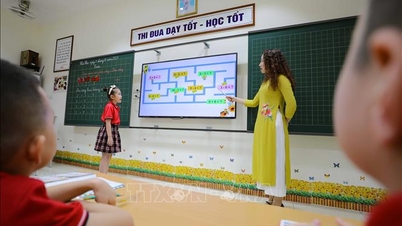



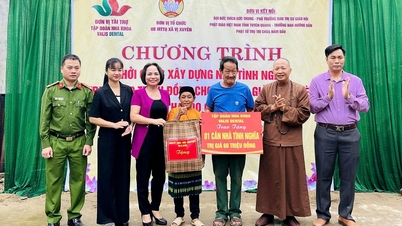



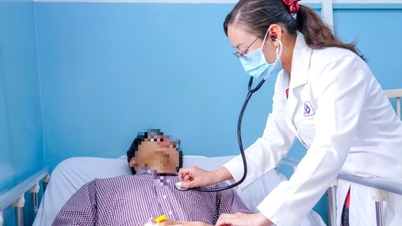







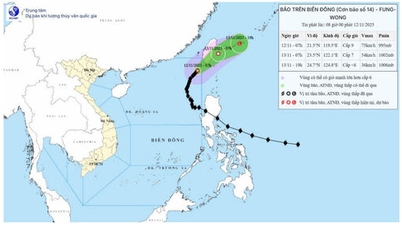































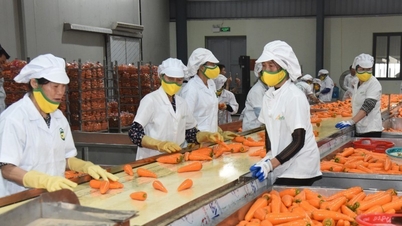
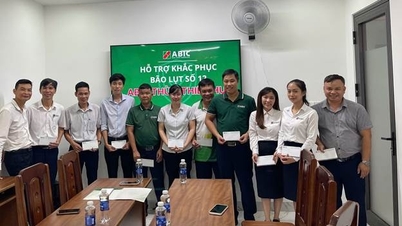










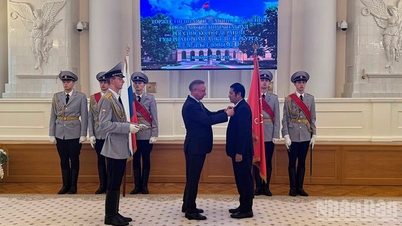















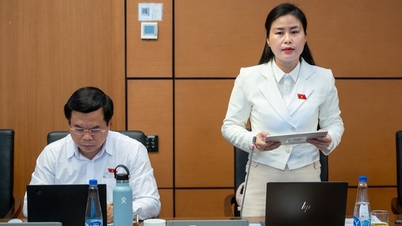
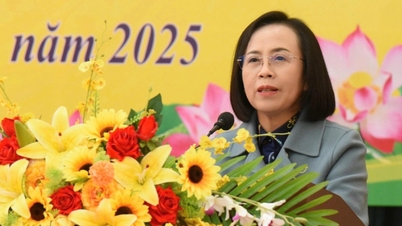
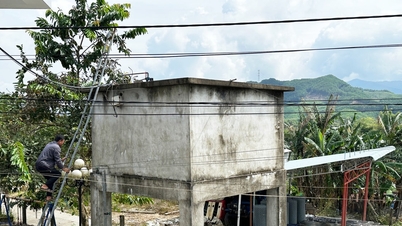
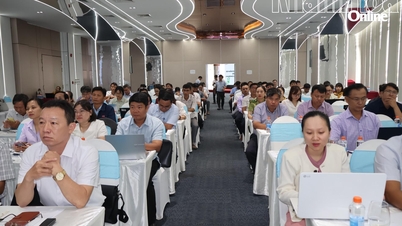








![Dong Nai OCOP transition: [Article 3] Linking tourism with OCOP product consumption](https://vphoto.vietnam.vn/thumb/402x226/vietnam/resource/IMAGE/2025/11/10/1762739199309_1324-2740-7_n-162543_981.jpeg)








Comment (0)